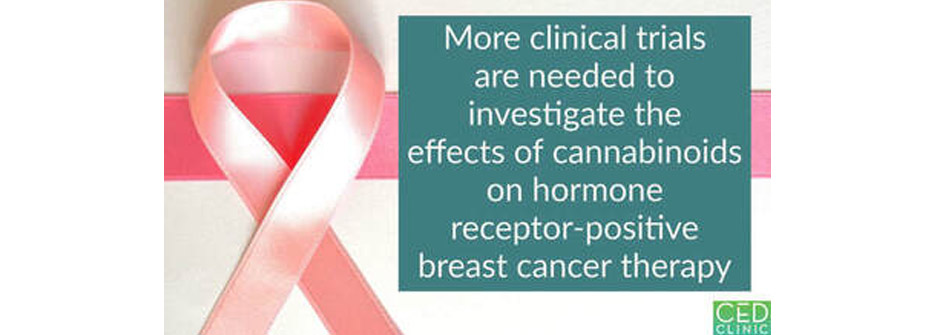Cannabinoids and Hormone Receptor-Positive Breast Cancer Treatment
In Summary
Breast cancer (BC) is the most common cancer in women worldwide. Approximately 70-80% of BC cases fall into the category of hormone receptor-positive (HR+), which derives its name from the presence of estrogen receptors (ER) on the cancerous cells and is responsive to endocrine therapy (ET).
The endocannabinoid signaling system (ECS) of the body includes naturally produced chemicals called cannabinoids, the receptors which they bind to, and the enzymes that synthesize and degrade them. Cannabinoids are most well known as the active components in the plant cannabis.
Although the interaction between the ECS and the hormonal axis central to ovulation in women is well-documented, little evidence exists on the effect of cannabinoids consumption on HR+ BC treatment. Some clinical studies, however, suggest that targeted therapy drugs commonly prescribed for HR+ BC patients including tamoxifen appear to act as inhibitors of cannabinoid receptors. In addition, some researchers propose that activity of cannabinoids when consumed by patients can interfere with other endocrine medications commonly used in HR+ BC therapy.
Documenting the safety of cannabinoid use in patients undergoing therapy for HR+ BC, therefore, is an urgent need, especially when cannabinoids are integrated frequently into palliative medicine. Until further evidence from clinical studies become available, caution should be exercised by physicians and patients when cannabinoid is consumed during therapy for HR+ BC and any other cancer.

